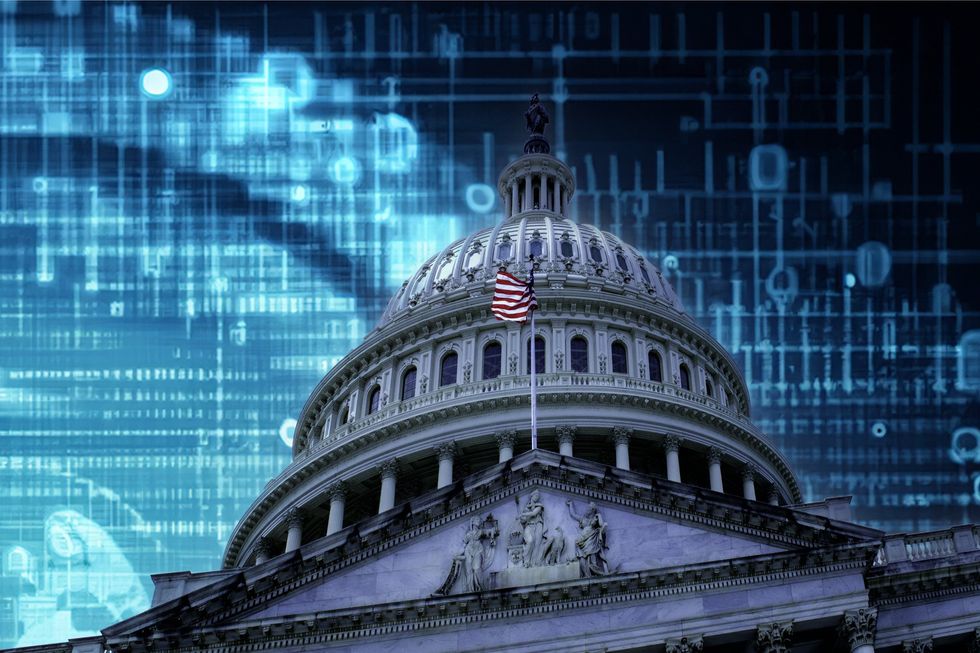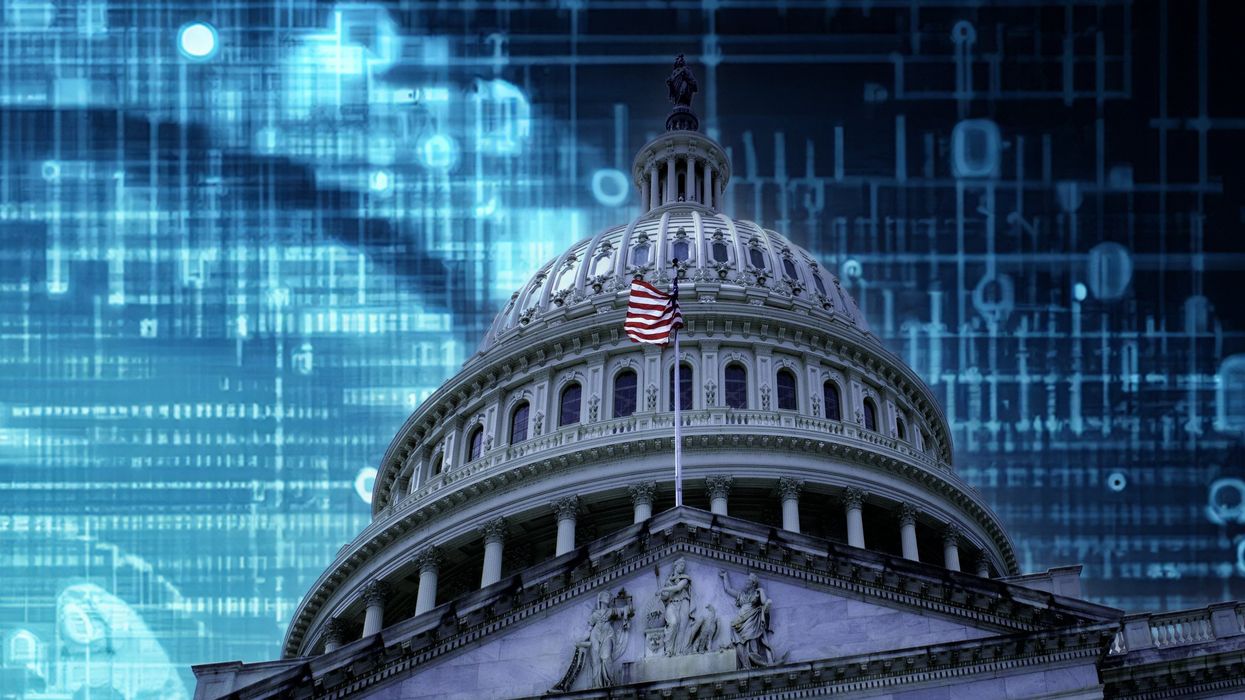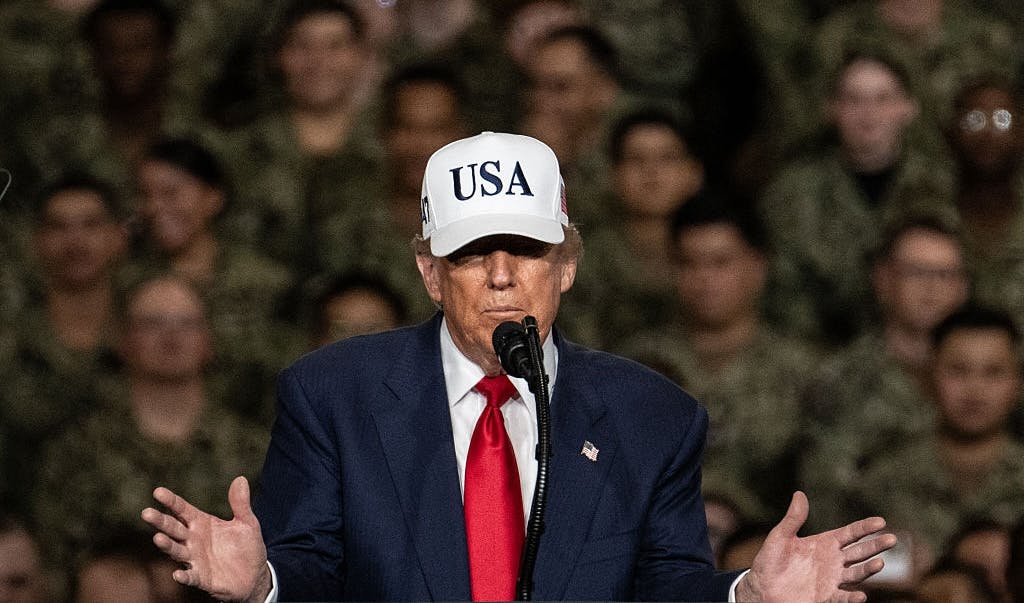The One Big Beautiful Bill Act hides a big, ugly AI betrayal


Picture your local leaders — the ones you elect to defend your rights and reflect your values — stripped of the power to regulate the most powerful technology ever invented. Not in some dystopian future. In Congress. Right now.
Live Your Best Retirement
Fun • Funds • Fitness • Freedom
Buried in the House version of Donald Trump’s One Big Beautiful Bill Act is a provision that would block every state in the country from passing any AI regulations for the next 10 years.
The idea that Washington can prevent states from acting to protect their citizens from a rapidly advancing and poorly understood technology is as unconstitutional as it is unwise.
An earlier Senate draft took a different route, using federal funding as a weapon: States that tried to pass their own AI laws would lose access to key resources. But the version the Senate passed on July 1 dropped that language entirely.
Now House and Senate Republicans face a choice — negotiate a compromise or let the "big, beautiful bill" die.
The Trump administration has supported efforts to bar states from imposing their own AI regulations. But with the One Big Beautiful Bill Act already facing a rocky path through Congress, President Trump is likely to sign it regardless of how lawmakers resolve the question.
Supporters of a federal ban on state-level AI laws have made thoughtful and at times persuasive arguments. But handing Washington that much control would be a serious error.
A ban would concentrate power in the hands of unelected federal bureaucrats and weaken the constitutional framework that protects individual liberty. It would ignore the clear limits the Constitution places on federal authority.
Federalism isn’t a suggestion
The 10th Amendment reserves all powers not explicitly granted to the federal government to the states or the people. That includes the power to regulate emerging technologies, such as artificial intelligence.
For more than 200 years, federalism has safeguarded American freedom by allowing states to address the specific needs and values of their citizens. It lets states experiment — whether that means California mandating electric vehicles or Texas fostering energy freedom.
If states can regulate oil rigs and wind farms, surely they can regulate server farms and machine learning models.
A federal case for caution
David Sacks — tech entrepreneur and now the White House’s AI and crypto czar — has made a thoughtful case on X for a centralized federal approach to AI regulation. He warns that letting 50 states write their own rules could create a chaotic patchwork, stifle innovation, and weaken America’s position in the global AI race.
— (@)
Those concerns aren’t without merit. Sacks underscores the speed and scale of AI development and the need for a strategic, national response.
But the answer isn’t to strip states of their constitutional authority.
America’s founders built a system designed to resist such centralization. They understood that when power moves farther from the people, government becomes less accountable. The American answer to complexity isn’t uniformity imposed from above — it’s responsive governance closest to the people.
Besides, complexity isn’t new. States already handle it without descending into chaos. The Uniform Commercial Code offers a clear example: It governs business law across all 50 states with remarkable consistency — without federal coercion.
States also have interstate compacts (official agreements between states) on several issues, including driver’s licenses and emergency aid.
AI regulation can follow a similar path. Uniformity doesn’t require surrendering state sovereignty.
State regulation is necessary
The threats posed by artificial intelligence aren’t theoretical. Mass surveillance, cultural manipulation, and weaponized censorship are already at the doorstep.
In the wrong hands, AI becomes a tool of digital tyranny. And if federal leaders won’t act — or worse, block oversight entirely — then states have a duty to defend liberty while they still can.
RELATED: Your job, your future, your humanity: AI just crossed the line we can never undo
 BlackJack3D via iStock/Getty Images
BlackJack3D via iStock/Getty Images
From banning AI systems that impersonate government officials to regulating the collection and use of personal data, local governments are often better positioned to protect their communities. They’re closer to the people. They hear the concerns firsthand.
These decisions shouldn’t be handed over to unelected federal agencies, no matter how well intentioned the bureaucracy claims to be.
The real danger: Doing nothing
This is not a question of partisanship. It’s a question of sovereignty. The idea that Washington, D.C., can or should prevent states from acting to protect their citizens from a rapidly advancing and poorly understood technology is as unconstitutional as it is unwise.
If Republicans in Congress are serious about defending liberty, they should reject any proposal that strips states of their constitutional right to govern themselves. Let California be California. Let Texas be Texas. That’s how America was designed to work.
Artificial intelligence may change the world, but it should never be allowed to change who we are as a people. We are free citizens in a self-governing republic, not subjects of a central authority.
It’s time for states to reclaim their rightful role and for Congress to remember what the Constitution actually says.
Originally Published at Daily Wire, Daily Signal, or The Blaze
What's Your Reaction?
 Like
0
Like
0
 Dislike
0
Dislike
0
 Love
0
Love
0
 Funny
0
Funny
0
 Angry
0
Angry
0
 Sad
0
Sad
0
 Wow
0
Wow
0










































































